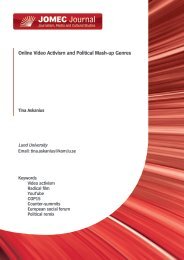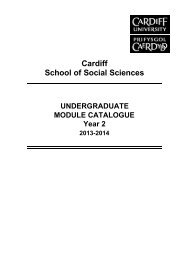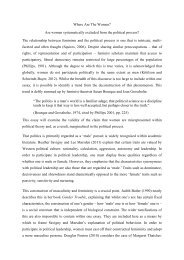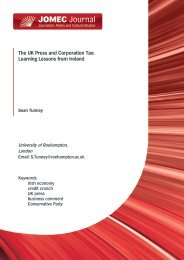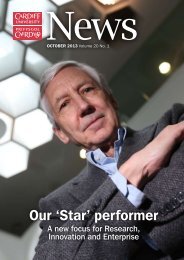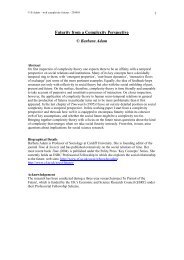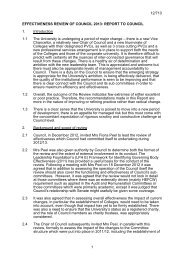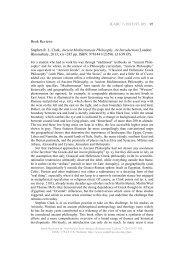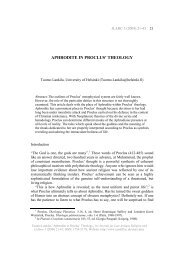Public Perceptions of Climate Change and ... - Cardiff University
Public Perceptions of Climate Change and ... - Cardiff University
Public Perceptions of Climate Change and ... - Cardiff University
Create successful ePaper yourself
Turn your PDF publications into a flip-book with our unique Google optimized e-Paper software.
Figure 1b. To what extent do you agree or disagree that the following energy sources<br />
will make a substantial contribution to reliable <strong>and</strong> secure supplies <strong>of</strong> electricity in<br />
Japan (% tend to/strongly agree)<br />
Figure 1b shows the level <strong>of</strong> agreement that the different energy sources will make a<br />
substantial contribution to reliable <strong>and</strong> secure supplies <strong>of</strong> electricity in Japan in the future.<br />
The overall pattern <strong>of</strong> responses is comparable to the one observed for Britain. In 2007, a<br />
clear majority <strong>of</strong> the Japanese public thought that sun/solar, wind <strong>and</strong> hydroelectric power<br />
will make a substantial contribution to reliable <strong>and</strong> secure supplies <strong>of</strong> energy in Japan,<br />
followed by biomass <strong>and</strong> gas. A minority <strong>of</strong> less than 30% thought that nuclear, oil <strong>and</strong> gas<br />
will make a substantial contribution to energy security.<br />
Fewer people in 2011 than in 2007 thought that any <strong>of</strong> the eight energy sources will make a<br />
substantial contribution to energy security in the future. The biggest decrease was found for<br />
renewables (in particular wind, hydroelectric <strong>and</strong> biomass) <strong>and</strong> nuclear power. The results<br />
regarding nuclear power are perhaps not surprising in the light <strong>of</strong> the Fukushima accident<br />
<strong>and</strong> the consequent shutdown <strong>of</strong> most nuclear power stations in Japan. However, the other<br />
changes are more difficult to interpret. The most likely explanation is that the Japanese<br />
public think that renewables may not be sufficient or cannot be developed fast enough to<br />
plug the energy gap left by the closure <strong>of</strong> nuclear power plants. It is also a possibility that the<br />
results reflect more generic concerns regarding energy security, considering there was a<br />
reduction for all eight energy sources.<br />
12




